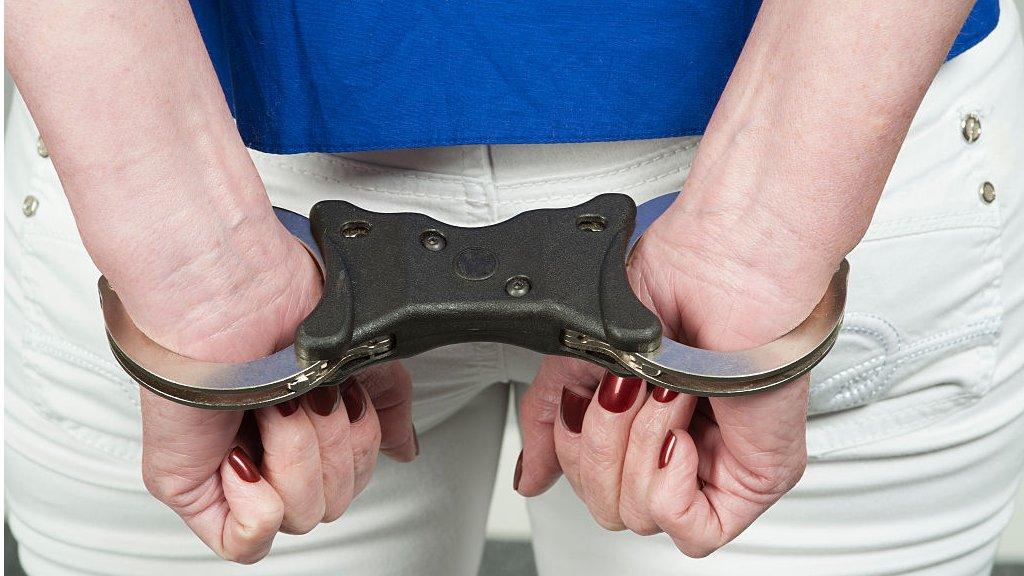Sexual offence victims face longest-ever court waits
- Published
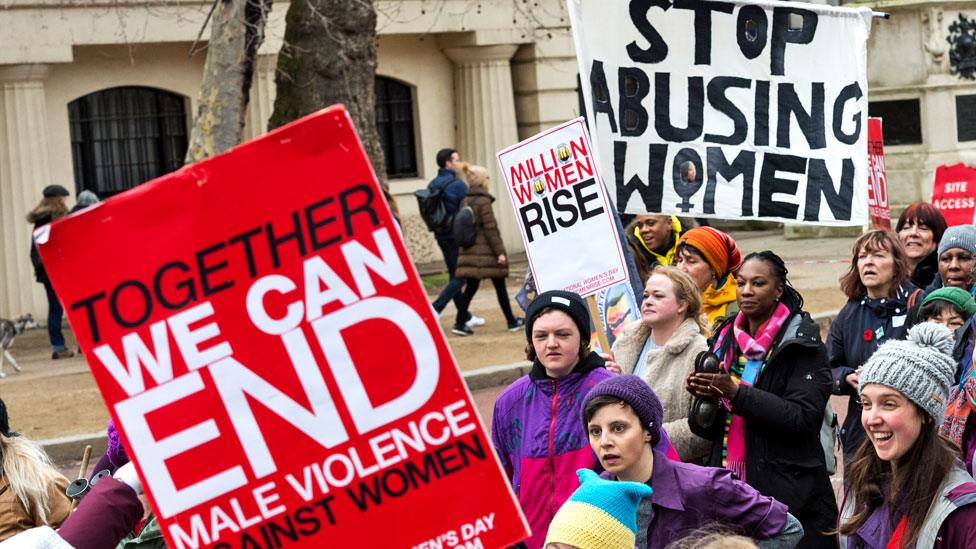
Serious sexual offences are taking the longest time on record to go through Crown Courts in England and Wales.
Exclusive data compiled by the BBC found such cases averaged nine months to complete in 2021, with differences depending on where you live.
Justice Secretary Dominic Raab said delays were caused by the pandemic but barristers blame funding cuts.
Some victims have said they would consider not reporting such crimes due to their experiences of delays.
Lisa, not her real name, was raped by someone she knew in 2017, but it took until late summer 2021 for her attacker to be convicted and jailed.
"I don't even have the words to explain how awful it has been," she said.
Despite seeing justice, she said she had been left with no confidence in the system.
"God forbid it ever happened again, or to any of my family, but I wouldn't promote going through the system and even reporting a crime of this nature anymore."
The data from July to September 2021 reveals:
The average case length for sexual offences was 266 days, or about nine months
The longest period for sexual offence cases was in Leicester, which took 453 days (about 15 months) on average to go through the Crown Court
Plymouth had the shortest wait for sexual offence cases to be completed, with an average of 76 days (about two and a half months) - meaning there is over a year's difference between the two courts
The case length is considered to be the time from the first Crown Court hearing to the sentencing or end of a case.
Separate national figures suggest the average case length for serious sexual offences has since risen to 270 days for October to December 2021.
In the same time period, case lengths for robbery offences averaged 225 days (about seven months), while violence against the person was 206 days (about 6.5 months).
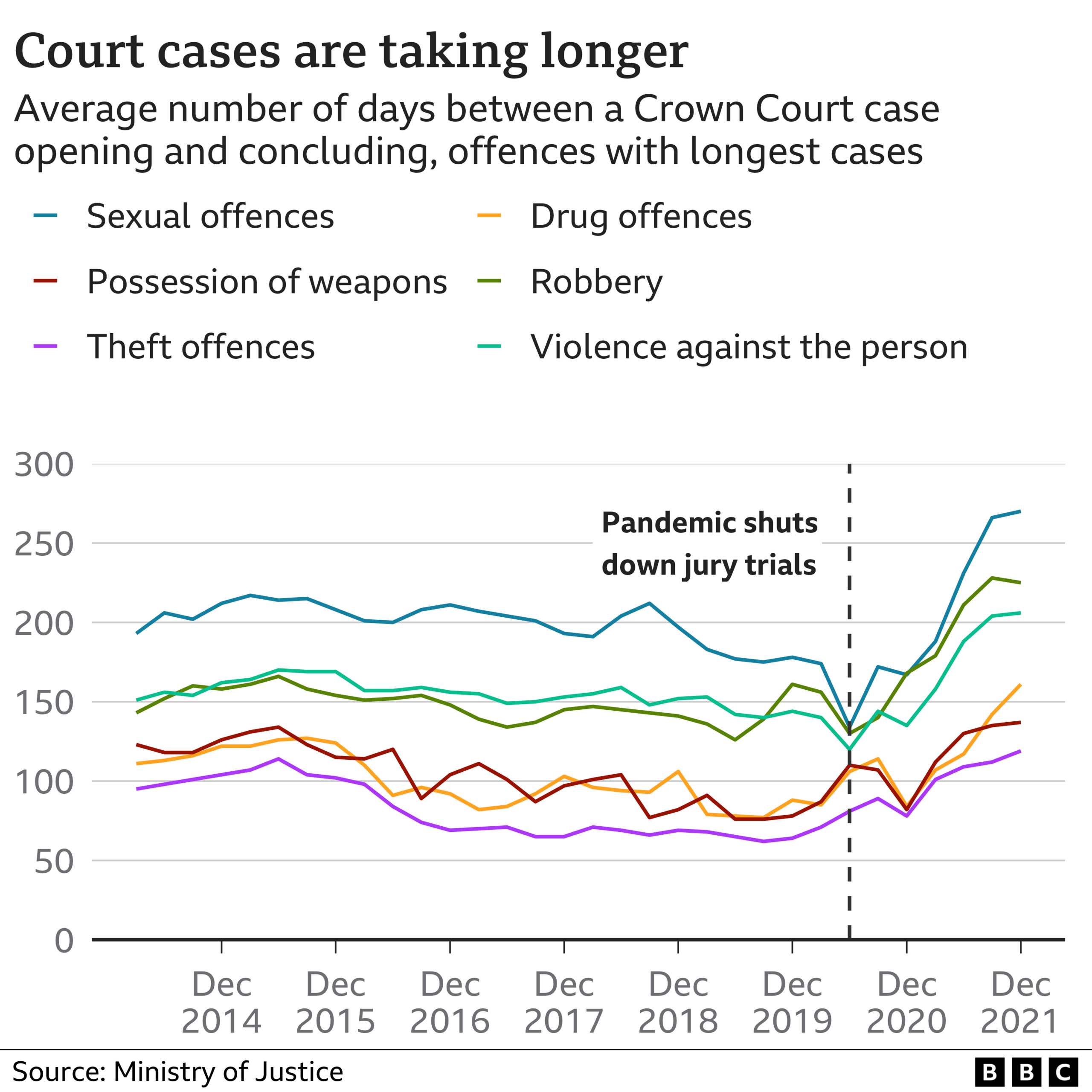
Due to their nature, sexual offence cases increasingly involve large amounts of evidence gathered from mobile phones and social media - which can make things difficult for police, prosecutors and victims.
Lisa went to the police with compelling evidence of what happened to her and felt confident her attacker would soon be in court.
"But it didn't happen in that way," she said.
The Crown Prosecution Service eventually authorised the police to charge the suspect in the summer of 2019 - two years later.
But because of backlogs, the earliest trial date available was April 2020. The closure of courts by the Covid pandemic meant the case was put back again until 2021. The attacker was not convicted and jailed until late summer 2021.
"I think if I hadn't reported it, I would have brought my mental health round a lot quicker than by extending the ordeal by having the additional impacts of the court system," Lisa said.
A woman, who was a victim of a serious sexual assault when she was 15, told BBC Radio 4's Today programme her case had taken almost four years to conclude when her attacker pleaded guilty late last year.
"If I could take back reporting it to save myself the trauma that I was put through then I would in a heartbeat," she said.
But the woman, now 19, added that to protect others from her assailant she would "go through the whole thing again".
She said that when she found out her court hearing had been postponed from October 2020 to November 2021, due to the defendant living with someone who had Covid, it was like her body had "just shut down".
"It had already been two-and-a-half years and it was just about to be over and then it was taken away from under my feet."
Data about the Crown Courts - published here after BBC Freedom of Information requests - comes amid growing concerns about backlogs across courts and industrial action by barristers.
Campaigners say the problems could result in victims dropping their cases.
Over the past four years, rape prosecutions in England and Wales have fallen by 70%.
How big is backlog in my area?
The latest available data shows the Crown Court backlog last December was 58,818 - down from a record of 61,000 cases earlier in 2021.
The overall average time it now takes for all types of cases to go from a report to the police to completion in court is 697 days, just below the record of 708 days set last summer.
This online tool reveals the average delays being seen court-by-court for serious sexual offences.
Your device may not support this visualisation
Inner London Crown Court and Harrow ranked highest in terms of having consistently long case lengths since the pandemic began, as opposed to just the latest quarter.
Outside of London, St Albans, Bournemouth and Bradford saw longer cases than other areas most often.
Criminal barristers say the current delays are the result of budget cuts, a decision to reduce how many days judges could sit and criminal barristers leaving for other branches of law.
Figures from last week reveal the number of criminal barristers has fallen by 10% in the last year alone.
"We simply do not have sufficient numbers of judges, prosecutors, and defenders to deal with the backlog," said Jo Sidhu QC, chair of the Criminal Bar Association (CBA).
The CBA says people are leaving for other branches of law because they can no longer make a living from cases that have to be funded through legal aid - the system that ensures that every defendant has professional representation to guarantee a fair trial.
On Monday, the CBA's members began industrial action over the legal aid rates, saying the government is dragging its feet over implementing an independent review's recommendation for a 15% increase in funding.
Mr Raab has warned barristers that their action will not solve the criminal justice delays they complain about - and that he will implement the increase in legal aid, and other reforms, following a legally-required consultation.
The government has committed to keep operating some temporary courts that it set up to help manage the backlogs caused by the pandemic - and it has a commitment from the Treasury to fund unlimited sitting days of available judges for the next financial year.
It has also introduced a system to allow more sexual offence victims to give their evidence in advance by video and is planning to move the sentencing of some lesser cases into magistrates' courts to ease the burden on judges.
"I know that it's very difficult for anyone that's been a victim of rape or serious sexual violence," Mr Raab said. "You recover from the original crime - and then you've got to muster the courage to go through the [courts] process. I'm absolutely committed to making sure those victims have the support at every step of the way."
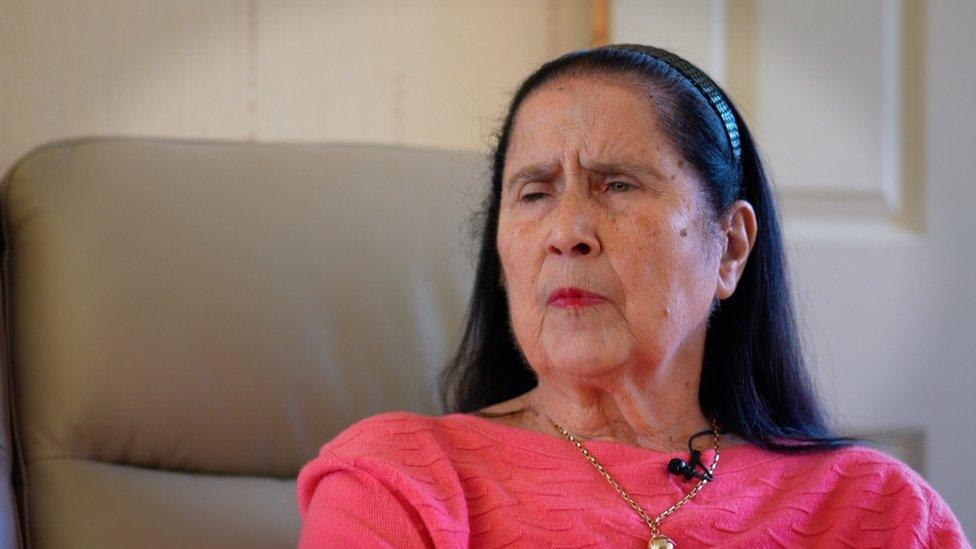
Sophia Chandler waited five years for a thief to face justice
Opposition parties say the plan isn't good enough.
"This soft-on-crime Conservative Government cannot blame Covid for its ineptitude because case delays were growing long before the pandemic," said Steve Reed MP, Labour's shadow justice secretary.
"These findings are yet more evidence that the Conservatives are letting criminals off and letting victims down."
But despite long delays across all crimes, some victims still say they are willing to go through the court system.
Sophia Chandler, who is blind, waited five years for a thief to face justice. She told police in Northamptonshire in 2017 that an assistant had been stealing from her home.
The case was originally slated for trial in September 2020 - but it was then put off, relisted for September 2021 and then put off until January this year.
When the opening day of the trial came, the defendant had disappeared, but she was convicted in her absence, eventually tracked down, and given an 18-week jail sentence, suspended for 18 months.
Mrs Chandler said that she had been afraid to walk out in case the defendant approached her but she was now relieved the case was over.
"It took a long, long, long time," she says. "I know that if it were to happen again, I would still go to the police and persevere. Otherwise there will be no justice."

If you have been affected by any of these issues in this story you can visit BBC Action Line.

Additional data journalism by Libby Rogers
- Published12 April 2022

- Published27 May 2022
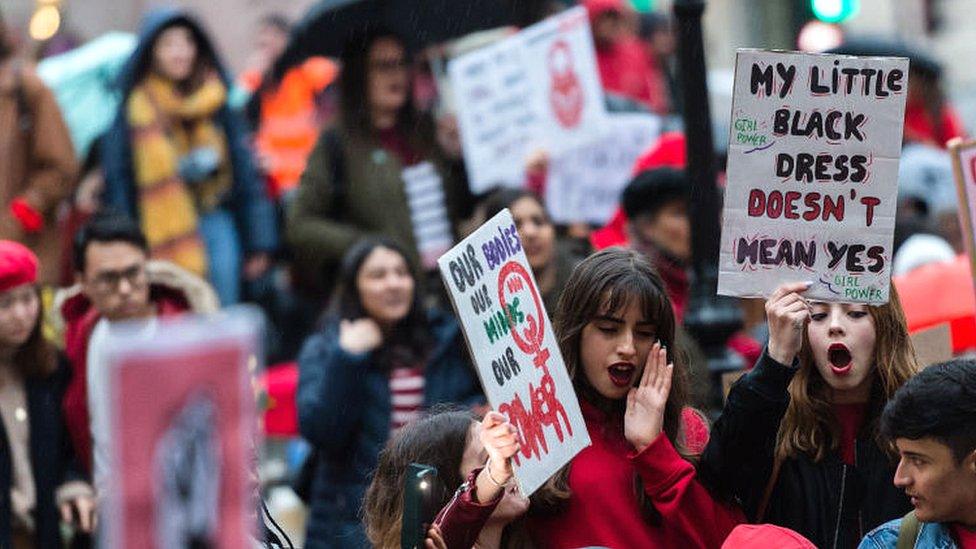
- Published25 February 2022
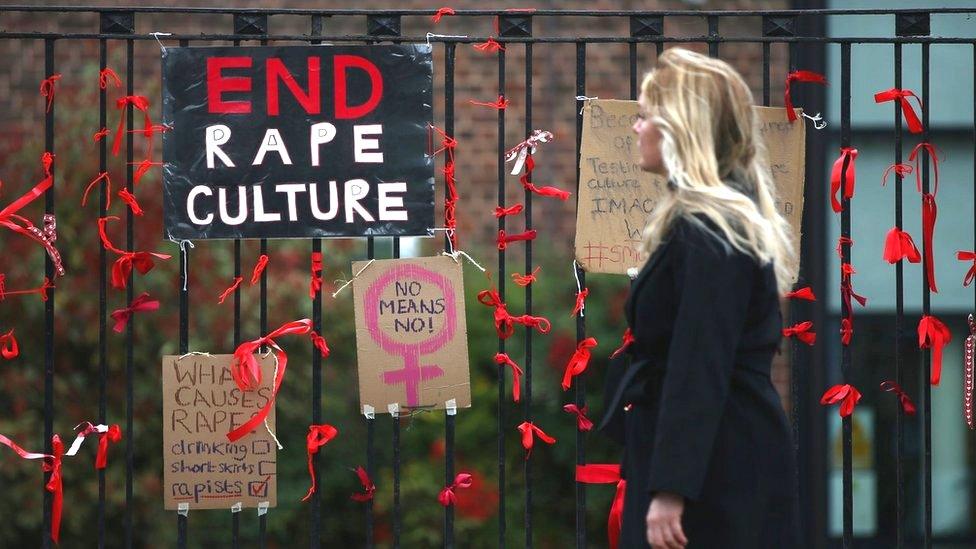
- Published11 April 2022
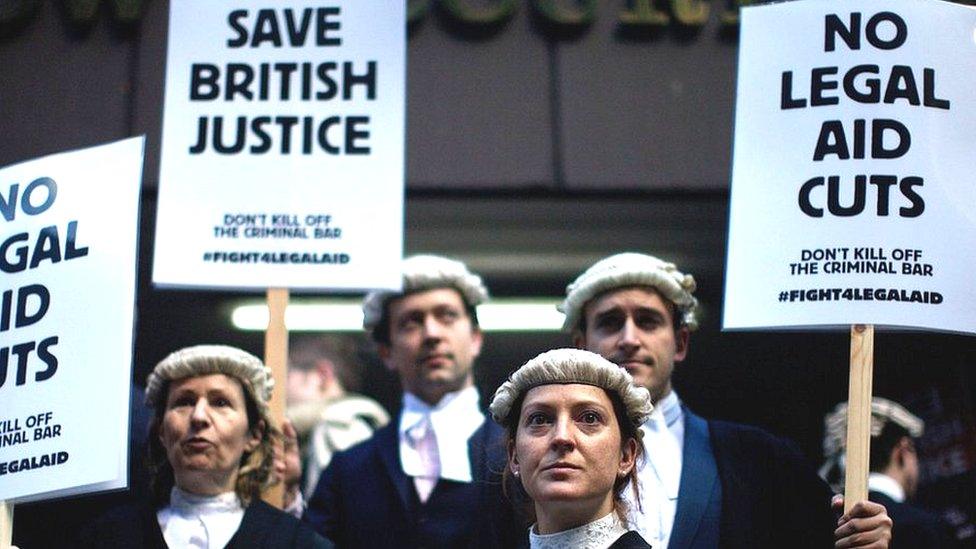
- Published7 January 2021
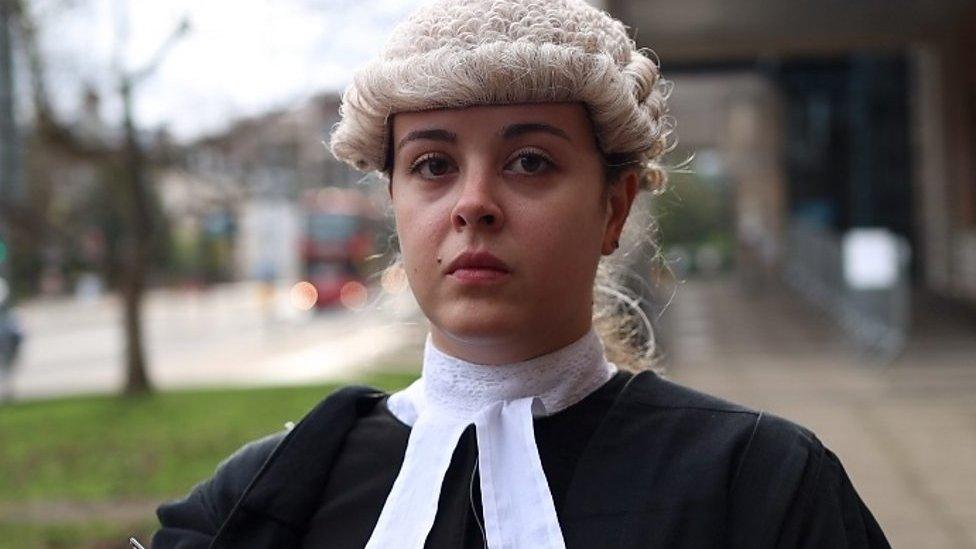
- Published15 April 2019
